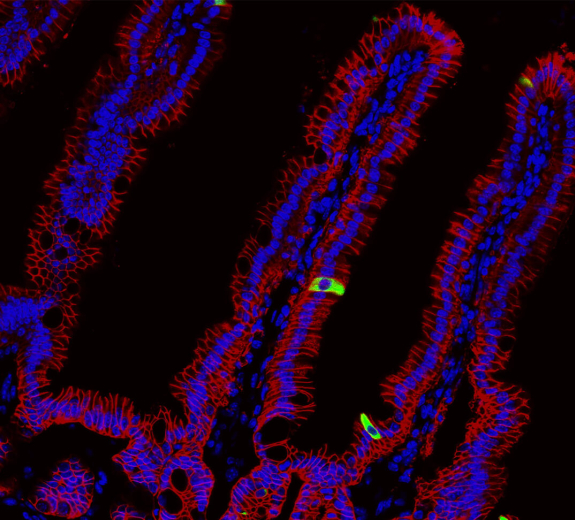
Leading a Biomarker Center To Fight Type 1 Diabetes
Biomarkers are key tools for scientists studying autoimmune and other diseases. A biomarker is a measurable characteristic that reflects a normal biological process or disease state. Researchers perform measurements on accessible tissues such as blood, urine or saliva and look for how the results can be used to track the disease process. Currently, biomarkers are used to identify people at risk for diseases, predict progression rates and assess how well treatments are working.
Recognizing an unmet need in the clinic, JDRF, an international organization funding type 1 diabetes (T1D) research, hosted a workshop in 2012 to focus on the identification and utilization of robust biomarkers for the disease. Gerald Nepom, MD, PhD, director of the Benaroya Research Institute at Virginia Mason (BRI), served as chair of this meeting, where leaders in the field from academia, government and industry shared ideas. Springing from this workshop was a newly formed Biomarker Working Group, developed to foster collaboration and data sharing among researchers in the international diabetes community.
An integral component of the Biomarker Working Group is the Core and Assay Validation Center (CAV), housed at BRI.
Through the leadership of Carla Greenbaum, MD, director of the Diabetes Clinical Research Program at BRI, the Institute is in a pivotal position to drive collaborative T1D research by virtue of both its internal diabetes patient registry and sample repository, its role as Operations Center for the multisite T1D Exchange Biobank, and now as the JDRF Biomarker Working Group CAV. Dr. Nepom is the principal investigator and Jared Odegard, PhD, is co-investigator of the CAV program supported by a $1.4 million three-year grant from JDRF. Cate Speake, PhD, serves as the operations manager of the CAV.
“The working group will help advance additional biomarkers from the lab to the clinic,” says Dr. Odegard. “Unlike some other cases, such as cancer, any individual biomarker in type 1 diabetes, taken in isolation, may not give us enough information to make individual treatment decisions. However, if we can combine different measurements into a kind of composite score, we expect it to dramatically increase the predictive value of these assays, so there is a real synergy in the group members working together.”
Dr. Odegard further describes how this work could impact patient care.
“For example, if our biomarkers can determine how fast type 1 diabetes is going to progress in a person, we can determine whether to manage the disease with either standard or more intensive insulin therapy, or even experimental immunosuppressive drugs. By the same token, biomarkers could make our trials of new drugs in recent-onset patients both more cost-effective and more likely to succeed.”
CAV CENTER Is A Hub For The Biomarker Research Community To:
- Request samples from diverse T1D biorepositories, including from BRI, the T1D Exchange, TrialNet and the Immune Tolerance Network; further develop candidate biomarker assays; and share their progress and data in real time through the JDRF Biomarker LabKey website.
- Use BRI expertise to help consortium investigators validate biomarkers so they become more repeatable, accurate and robust.
- Develop composite biomarkers, in a way never before attempted, to assemble signatures involving multiple biomarker measurements to better predict the clinical course of type 1 diabetes.
Immuno-what? Hear the latest from BRI
Keep up to date on our latest research, new clinical trials and exciting publications.


